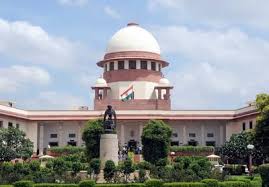NEW DELHI: The Supreme Court on Thursday dismissed petitions seeking review of its October 17, 2023, verdict refusing to recognise same-sex marriages in India, saying no interference was warranted as there was no error apparent on the face of the record.
“We have carefully gone through the judgments delivered by S Ravindra Bhat (ex-Judge) speaking for himself and for Justice Hima Kohli (former Judge) as well as the concurring opinion expressed by one of us Justice Pamidighantam Sri Narasi-mha, constituting majority view.
“We do not find any error apparent on the face of the record. We further find that the view expressed in both the judgments is in accordance with law and as such, no interference is warranted,” a five-judge Constitution Bench led by Justice BR Gavai said, dismissing over a dozen review petitions.
The other four judges on the Bench were Justice Justice Suryakant, Justice BV Nagarathna, Justice PS Narasimha and Justice Dipankar Datta. Justice Narasimha was the only judge who was on the original Bench that refused to recognise same-sex marriages in India. The other four judges on the original Bench were CJI DY Chandrachud, Justice SK Kaul, Justice Ravindra Bhat and Justice Hima Kohli, who all have retired.
Review petitions are generally heard “in chamber” and not in an open court by a procedure called “hearing by circulation” where advocates representing the parties are not allowed to argue. But in exceptional cases, the top court allows open court hearing, if convinced about its need.
A five-judge Bench led by CJI Chandrachud (since retired) had on October 17, 2023, unanimously turned down petitions seeking to allow same-sex marriages under the Special Marriage Act, saying it’s for Parliament to effect changes in the law for validating such unions.
Holding that there’s no fundamental right to marry, the Supreme Court had refused to allow same-sex marriages in India even as it directed the Centre to set up a high-powered committee headed by the Cabinet Secretary to decide the rights and entitlements of persons in queer unions.
It had directed the government to set up a high-powered committee to decide the rights and entitlements of persons in queer unions. By a majority of 3:2, the Constitution Bench had upheld one of the adoption regulations that prohibited unmarried and queer couples from adopting children. Contending that Articles 19 and 21 guaranteed all persons the right to marry a person of their choice, including LGBTQIA+ persons, the petitioners had contended that the Special Marriage Act violated the right to dignity and decisional autonomy of LGBTQIA+ persons. However, the Supreme Court had rejected their contention.


